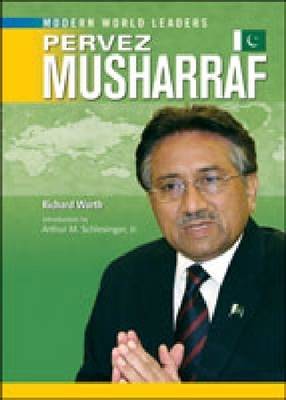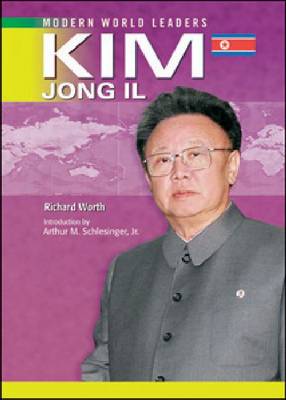Modern World Leaders
4 total works
In 2006, Michelle Bachelet made history by becoming the first woman to be elected president of Chile. The daughter of a Chilean Air Force general, Bachelet and her family were gravely affected by the upheaval that occurred after the 1973 military coup that derailed the government of Salvador Allende. Her father was arrested, and died in prison. Bachelet and her mother were tortured and finally fled Chile for Eastern Europe. They eventually returned home, where Bachelet attended medical school. After the military rule ended, she entered politics, serving as minister of health and later defense minister. During the early part of her presidential administration, she dealt with important issues head-on. Michelle Bachelet thoroughly examines the life and accomplishments of a world leader who has brought new light to a nation emerging from a dark past.
President Pervez Musharraf of Pakistan governs a critical state in the worldwide war on terror. Before becoming president, Musharraf had spent his entire career in the Pakistani army. He helped train Afghani guerrilla forces to overthrow the Soviet regime. He was also involved in leading Pakistani troops against Indian forces as part of the continuing struggle between the two nations over the disputed Kashmir area. During his tenure as president, the Pakistani economy has grown. Nevertheless, Musharraf has been forced to contend with political groups who have not supported his authoritarian government. Some of these groups support al Qaeda. However, after the 9/11 terrorist attacks, Musharraf has become a strong ally of the United States in the war on terror. ""Pervez Musharraf"" keenly examines the life and career of this leader, whose decisions are capable of influencing some of the most pressing issues of our time.
North Korea has been a communist dictatorship since shortly after the end of World War II. Ruled by the iron hand of Kim Il Sung, the nation struggled economically compared to South Korea, which engineered an economic miracle. Kim died in 1994, turning over the government to his son, Kim Jong Il. A pampered youth, Kim Jong Il gradually took over a variety of powerful positions in his father's government. After he became the dictator, the country suffered a series of economic disasters that brought death to thousands of people. Meanwhile, Kim Jong Il became widely known for turning North Korea into a nuclear power. During the early 21st century, President George W. Bush labeled North Korea part of the Axis of Evil. But some experts on North Korea believe that Kim is simply using the nuclear card to gain worldwide respect and economic aid from the United States. Nevertheless, Kim Jong Il remains a highly controversial leader.


